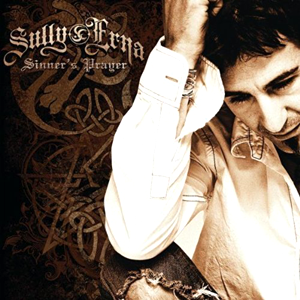
The Jesus Prayer is a short formulaic prayer esteemed and advocated especially within the Eastern churches: "Lord Jesus Christ, Son of God, have mercy on me, a sinner." The prayer has been widely taught and discussed throughout the history of the Orthodox Church. The ancient and original form did not include the words, "a sinner", which were added later. It is often repeated continually as a part of personal ascetic practice, its use being an integral part of the eremitic tradition of prayer known as Hesychasm. The prayer is particularly esteemed by the spiritual fathers of this tradition as a method of opening up the heart (kardia) and bringing about the Prayer of the Heart. The Prayer of The Heart is considered to be the Unceasing Prayer that the apostle Paul advocates in the New Testament. Theophan the Recluse regarded the Jesus Prayer stronger than all other prayers by virtue of the power of the Holy Name of Jesus.

The Hail Mary is a traditional Catholic prayer asking for the intercession of the Blessed Virgin Mary, the mother of Jesus. In Roman Catholicism, the prayer forms the basis of the Rosary and the Angelus prayers. In the Oriental Orthodox Churches, Eastern Orthodox and Eastern Catholic Churches, a similar prayer is used in formal liturgies, both in Greek and in translations. It is also used by many other groups within the catholic tradition of Christianity including Anglicans, Independent Catholics, and Old Catholics.

Kyrie, a transliteration of Greek Κύριε, vocative case of Κύριος (Kyrios), is a common name of an important prayer of Christian liturgy, also called the Kyrie eleison.

The Angelus is a Catholic devotion commemorating the Incarnation. As with many Catholic prayers, the name Angelus is derived from its incipit—the first few words of the text: Angelus Domini nuntiavit Mariæ. The devotion is practised by reciting as versicle and response three Biblical verses narrating the mystery, alternating with the prayer "Hail Mary". The Angelus exemplifies a species of prayers called the "prayer of the devotee".

Psalm 51 is the 51st psalm of the Book of Psalms, generally known in English by its first verse, in the King James Version, "Have mercy upon me, O God". In the Greek Septuagint version of the bible, and in its Latin translation Vulgate, this psalm is Psalm 50 in a slightly different numbering system. In Latin, it is known as "Miserere mei, Deus", for which it is traditionally known as the Miserere, especially in musical settings. Psalm 51 is one of the Penitential Psalms. It was composed by David as a confession to God after he sinned with Bathsheba.
The Fátima prayers are five Catholic prayers that originate from the Marian apparitions at Fátima, Portugal, in 1917. The Decade Prayer, as the best known of these five prayers, is commonly added at the end of each decade of the Dominican Rosary, one of the most popular devotional practices in Roman Catholicism. Another two other prayers are also associated with the visions and may be classed as Fátima Prayers. However, they did not come to existence in Fátima but in Spain many years later. This brings the number of prayers to seven.

"Like a Prayer" is a song recorded by American singer Madonna for her fourth studio album of the same name. Sire Records released it as the album's lead single on March 3, 1989. Written and produced by Madonna and Patrick Leonard, the track heralded an artistic and personal approach to songwriting for Madonna, who believed that she needed to cater more to her adult audience. Thematically the song speaks about a passionate young girl in love with God, who becomes the only male figure in her life.
Tota pulchra es is an old Catholic prayer, written in the fourth century. It is one of the five antiphons for the psalms of Second Vespers for the Feast of the Immaculate Conception. The title means "You are completely beautiful". It speaks of her immaculate conception. It takes some text from the book of Judith, and other text from Song of Songs, specifically 4:7.

"Sinner Man" or "Sinnerman" is an African American traditional spiritual song that has been recorded by a number of performers and has been incorporated in many other of the media and arts. The lyrics describe a sinner attempting to hide from divine justice on Judgment Day. It was recorded in the 1950s by Les Baxter, the Swan Silvertones, the Weavers and others, before Nina Simone recorded an extended version in 1965.
Saints and Sinners may refer to:
Three Hail Marys is a traditional Roman Catholic devotional practice of reciting three Hail Marys as a petition for purity and other virtues. Believers recommend that it be prayed after waking in the morning, and before going to bed, following the examination of conscience at night. This devotion has been recommended by St. Anthony of Padua, St. Alphonsus Liguori, St. John Bosco and St. Leonard of Port Maurice. Two saints, Mechtilde and Gertrude, are said to have received revelations from the Blessed Virgin Mary regarding this practice.
Tzidkatcha is a prayer consisting of group of three verses that is recited during the afternoon prayer on Shabbat. It is said in memory of three righteous individuals who died on Shabbat: Joseph, Moses and King David. It is recited at this prayer in particular because these individuals died in the afternoon.

The Immaculata prayer is a Roman Catholic Marian prayer composed by Saint Maximillian Kolbe.
Psalm 4 is the 4th psalm from the Book of Psalms. Its authorship is traditionally assigned to king David. The psalm's text is a reflection of David speaking to all sinners while addressing himself to Absalom. The message in the psalm is that the victories of sinners are only temporary and meaningless, and that only repentance can bring true happiness. It is a request to God for deliverance from past distresses.

"Sinner's Prayer" is a song by American rock musician Sully Erna. It is the lead single from his 2010 debut album Avalon. The song was originally written for Sylvester Stallone's blockbuster "The Expendables" but later taken off the film and soundtrack during post-production. However, the song is reinstated back in the film in the extended director's cut during the films new opening credits sequence.

Avalon is the first solo studio album by American rock musician Sully Erna, released on September 14, 2010. Avalon is a combination of work that took Sully Erna almost seven years to complete.

Born Sinner is the second studio album by American rapper J. Cole. It was released on June 18, 2013, by ByStorm Entertainment, Columbia Records, Dreamville Records and Roc Nation. The album serves as the follow-up to his debut album, Cole World: The Sideline Story (2011). The album features guest appearances from Miguel, Amber Coffman, Jhené Aiko, James Fauntleroy, Bas, TLC, Kendrick Lamar and 50 Cent. The album was also primarily produced by Cole himself, along with others such as Jake One, Syience, Christian Rich and Elite.
"Forbidden Fruit" is a song by American hip hop recording artist J. Cole. The song was sent to radio stations in August 2013, as the third official single from Cole's second studio album, Born Sinner (2013). "Forbidden Fruit" was produced by Cole himself and features a guest appearance from frequent collaborator and fellow American rapper Kendrick Lamar, who contributes vocals to the song's hook. The song features a sample of American jazz musician Ronnie Foster's "Mystic Brew", most recognized from its use on hip hop group A Tribe Called Quest's "Electric Relaxation". The song was met with mixed reviews from music critics. "Forbidden Fruit" would peak at number 46 on the Billboard Hot R&B/Hip-Hop Songs chart.













